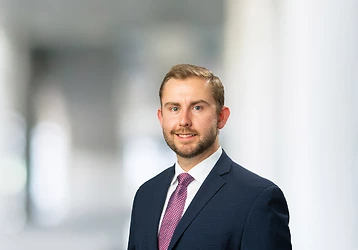Butzel Achieves Major Victory in First Amendment Case, Defending Election Safeguards in Michigan
Butzel recently achieved a significant victory involving constitutional challenges to longstanding election laws in Michigan. Priorities USA v. Nessel, No. 19-13341, 2022 WL 4272299 (E.D. Mich. Sept. 15, 2022).
Background
Leading up to the 2020 elections, three nonprofits sued Attorney General Nessel in federal court in Detroit to enjoin two Michigan election laws. The first law—the “harvesting ban”—prohibits offering to return an absentee ballot application and from returning an application to the local clerk unless that person is a member of the voter’s immediate family or household, a mail carrier, or a registered Michigan voter (MCL 168.759). The second law—the “paid-driver ban”—prohibits payment for transporting voters to an election, except voters who are physically unable to walk (MCL 168.931(1)(f)). The plaintiffs claimed, among other things, that the challenged laws violate their First Amendment speech and associational rights, are unconstitutionally vague and/or overbroad, and are preempted by federal law.
The Legislature intervened to defend the laws. The Republican National Committee and the Michigan Republican Party—represented by Butzel—intervened to join Attorney General Nessel and the Legislature in defending the challenged laws, and also to protect their competitive interests (collectively with the Legislature, “Intervenors”).
Before the 2020 general election, the trial court partially granted a preliminary injunction, ruling that the Federal Election Campaign Act (“FECA”) preempts the paid-driver ban. Priorities USA v. Nessel, 487 F. Supp. 3d 599 (E.D. Mich. 2020). The Intervenors appealed.
The U.S. Court of Appeals for the Sixth Circuit promptly stayed the injunction before the general election. Priorities USA v. Nessel, 978 F.3d 976 (6th Cir. 2020). It later reversed the preliminary injunction, finding that that the paid-driver ban is aimed at preventing voter fraud—specifically “vote-hauling,” a form of bribery where a voter is paid to be hauled to the polls to vote—and that the law is not preempted by FECA. Priorities USA v. Nessel, 860 F. Appx. 419 (6th Cir. 2021).
The Victory
Back in the trial court, the Intervenors moved for judgment on the pleadings—i.e. that the plaintiffs’ claims failed on the merits, even if their factual allegations were accepted as true for the sake of argument. On September 15, 2022, the court agreed and dismissed the plaintiffs’ claims entirely. What follows is a summary of the court’s reasoning.
A. The Harvesting Ban
Although the First Amendment protects expressive conduct, the return of completed absentee ballot applications is not expressive conduct, so the harvesting ban does not infringe upon First Amendment interests.
Even if the harvesting ban did abridge expressive conduct, the law would survive the Anderson-Burdick framework used to assess First Amendment challenges to state election regulations, where courts weigh the burden imposed by the state’s regulation against the state’s interests for the rule. At most, the harvesting ban minimally burdens First Amendment interests, while the law serves the state’s compelling interests in preventing fraud (using “well-recognized means” to do so) and promoting accountability and faith in the absentee-voting system.
The plaintiffs also lacked standing to claim that Section 208 of the Voting Rights Act (“VRA”), which gives certain voters a right to have assistance with voting, preempted the harvesting ban. They alleged only that they represented the interests of voters who may be affected by the law; the plaintiffs did not show that they would themselves be harmed by the ban. Even if the plaintiffs could have made that showing, the preemption claim would have still failed because the VRA does not give covered voters an absolute right to select who will assist them.
B. The Paid-Driver Ban
The paid-driver ban is not unconstitutionally vague or overbroad. It prohibits people (including the plaintiffs) from paying someone—whether in the form of wages or otherwise—to drive voters, except those physically unable to walk, to an election poll.
The court also analyzed the paid-driver ban under the Anderson-Burdick framework. The law only minimally burdens the plaintiffs’ get-out-the-vote efforts because it limits just one of countless ways they could bring voters to the polls. At the same time, the law serves the state’s important regulatory interest in deterring fraud at the polls and securing public confidence in elections. Weighed against the minimal burden imposed, the paid-driver ban law is a reasonable, nondiscriminatory restriction justified by its fraud-prevention interest, and therefore satisfies Anderson-Burdick.
Please contact Butzel with your First Amendment and election or campaign related questions.
Kurtis T. Wilder
313.983.7491
wilder@butzel.com
Steven R. Eatherly
313.983.6953
eatherly@butzel.com
Joseph E. Richotte
248.258.1407
richotte@butzel.com
Barrett R.H. Young
313.983.7465
youngb@butzel.com














